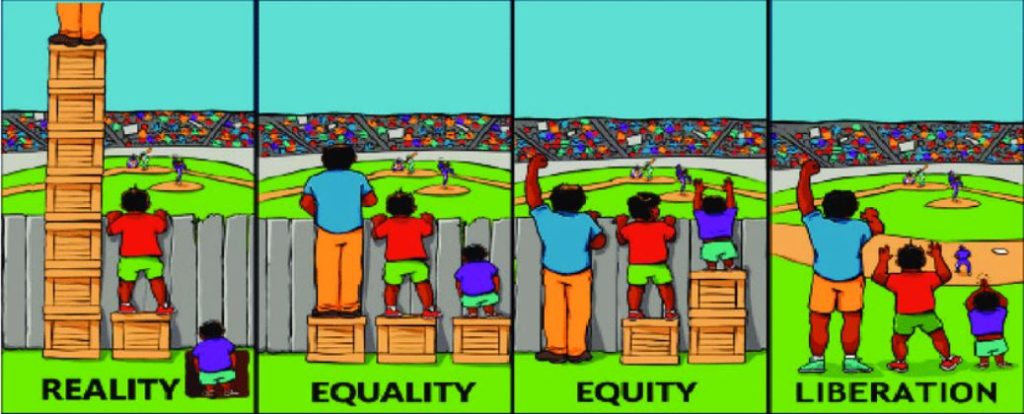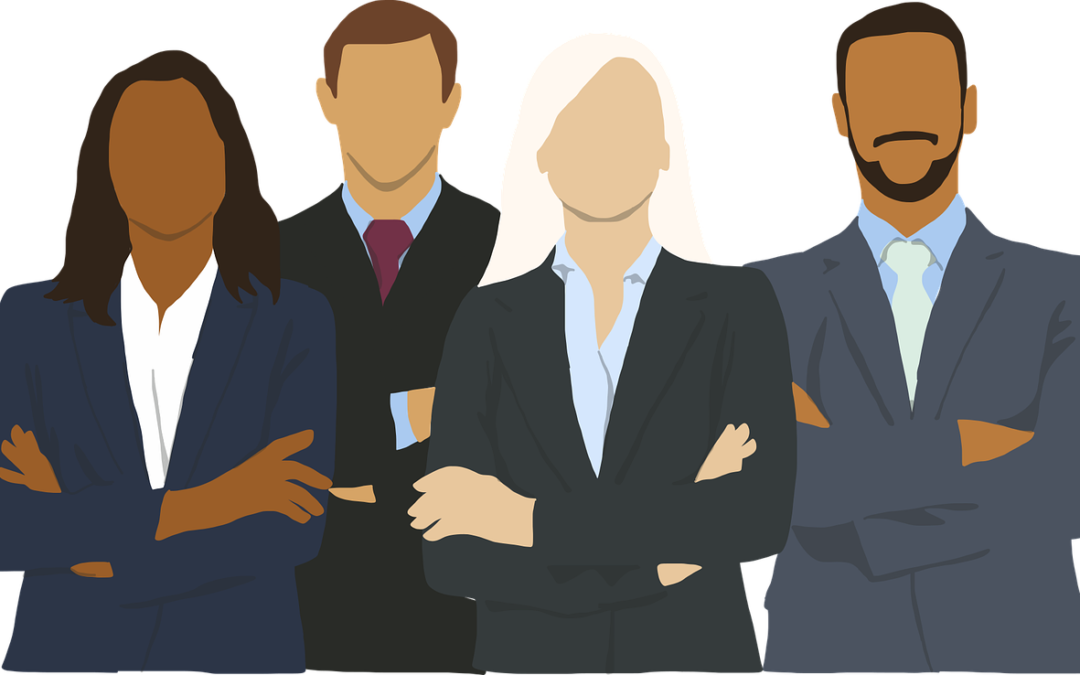While watching the latest season uploaded on Netflix for Grey’s Anatomy, I came across an episode in which the protagonist talks about equality and equity.
The incident was this. One of the senior doctors in the hospital treats an Asian-American for a condition based on the symptoms present. His diagnosis was based on data that he had and concluded it was appendicitis. However, what he missed out on was that a large percentage of Asian Americans are prone to another condition and this led to further complications.
Was this racism? What did the doctor do wrong?
Equality is Not the Answer
Fanatic liberal groups have been harping on equality in various forums. These groups fight for equality of treatment from the majority groups (depending on the culture, context, environment, and society they live in). They want to see numbers and statistics that show equal outcomes in boardrooms, corporate world, politics, and industries and want equal representation in some segments.
Those opposed to gender equality in the way it is being treated often argue that this gender equality seems to be sought after only in thriving and in-demand sectors in order to get an unfair advantage. “Why do gender equality proponents not fight for gender equality in heavy machinery industries and only equality in boardrooms?”, they ask.
The above incident in the series is an amazing example of how equality is really not the answer to the problem. The doctor treated the patient as he would have any other patient. That would mean equality! However, that did not prove to be a helpful way for the patient. Treating someone as equal (to the majority present in the area) does not always result in beneficial results.
If I think about it a little further, it becomes apparent to me that we do not really want to treat everyone equally. We do not do that and there seems to be no reason why we should too!
- Would you treat a blind person (calling it visually impaired does not change the fact that the individual cannot see) exactly as you would treat someone who can see?
- Would you treat someone who is in a wheelchair in the same way as you would someone who has legs?
- Would you treat a woman exactly the same as you would treat another man?
The problem is the doctor’s diagnosis resulted from a blindness to the difference that existed in his patient as compared to most of the other patients he had treated. His data was based largely on the Caucasian patients he had attended to in his professional career. Specific blindness to the difference in the Asian American is what caused the error.
Forbes offers these strategies to ensure gender equality in workplaces.
Equity – and its Advantages
Equity means the quality of being fair and impartial. This means that the treatment meted out to individuals and groups is based on their specific needs. The treatment or support provided is based on what that individual or group needs to have equal opportunity (and not outcome!)
If the doctor in the net series was being equitable, he would have acknowledged the patient as an Asian American and treated him accordingly, giving him the diagnosis and care he required. The interesting part is that we do that in our daily lives almost all the time.
- We help a blind person cross the road, whereas we do not start offering our hand to those who can see.
- We make sure we provide an equitable environment for those who are in a wheelchair by providing ramps along with stairs.
- We design different kinds of washrooms for women and men so that they are appropriate for each gender. We do not create urinals in women’s washrooms just because men’s washrooms have them.
The feeling of unfairness in the current scenario comes from high demands placed on support for some groups. Today there seems to be no way to measure ‘fairness’ or ‘equity’ in the context of human behavior and treatment. And, so the level of support being demanded seems to be based on numbers that measure ‘outcome’ without keeping in mind individual differences (50% of the world’s population may be women but the same proportion of men and women may not desire those boardroom positions).
Humanity – the Final Frontier
It is ironic that I mention ‘humanity’ as the final frontier (at least in this regard). The irony is even more exaggerated when we think about corporate inclusion workshops. They are definitely the need to the hour since we have forgotten how to be human. However, they are essentially trying to teach ‘humans to be humans’!
This is done by teaching people to become more aware, identify and point out unconscious biases explicitly, and by training people on how they can present themselves in the world without these biases.
Our mind creates categories, groups, generalizations, and stereotypes to make processing easier. This is an attempt by the body to optimize energy resources for decision-making and cognitive processing.
- If we believe ‘All boys eat large amounts of food’, we do not have to figure out how much food this particular boy needs.
- If we believe ‘Those who live in this area are violent’, we can always be on alert in that area and keep ourselves safe.
- If we believe ‘All shopkeepers are clever and use devious mechanisms to make a profit, we can save ourselves some money when shopping.
And these beliefs, assumptions, and generalizations are the beginnings of hardcore beliefs that lead to discrimination, if not checked. These are the ideas that become unconscious beliefs after some time as the brain pushes these pathways deeper into the subconscious mind.
It is only with awareness, constant inquiry, and inclusion that we can get rid of these. Here are some ideas:
- Question each and every generalization that you come across consciously – this will at least ensure that you are able to get rid of the conscious biases. Some examples of conscious biases are – women love shopping, men are more analytical than women, young boys need a strict disciplinarian hand to keep them under check, only industrious people are successful, women who wear certain kinds of clothes are of a certain nature, women like cooking, men should be responsible for earning for their family….and many more.
- Increase your awareness and knowledge by reading and traveling – fiction is the first frontier that opens minds. You read about different people, different cultures, the way they think, understand their values, and comprehend much more than your limited physical environment. Traveling is the next layer that helps you actually experience those differences.
- See the Self in you in others too – this is a bit of a stretch because it involves understanding the oneness that we all are. As a start, however, you can work towards enhancing empathy to gain an understanding of another person’s perspective and their reality. It is learning the ability to really put yourself in another person’s shoes and looking at things from their perspective, and with compassion.
When we can finally remove those factors that cause inequity and inequality in the first place, we can truly achieve a society where biases, systemic barriers, glass ceilings, and limitations do not exist!
Summary – Equality, Equity, and Humanity

The reality is that some people and groups were pushed into a ditch for years. That causes the anger and frustration that we see today. It also results in a blame game within groups about how some were persecuted and enslaved or colonized.
The demand for equality does not solve issues since individuals and groups have different needs and different starting points. Either environment has resulted in a different starting point (some are born with a silver spoon, some are born poor, some get lucky and some do not). Or their biology means that they need different kinds of support (some do not need support, some need little support, and others need a lot of support).
Equity ensures that each individual is given the kind of support they need to meet their goals. It needs to be emphasized that the target is not for everyone to achieve the same goal but to have the opportunity to achieve the goal THEY have chosen for themselves.
However, humanity wins when biases and systemic barriers that cause challenges are removed.


I have always treated equality with scepticism. Your cogent, well researched article has opened my eyes to equity. Very well elucidated, Shiwani.
Thank you so much. Your words motivate me so!